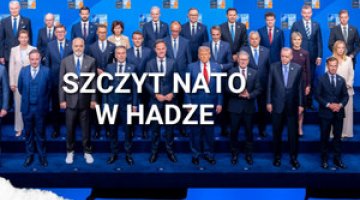Friction between Turkey and NATO?
On 26 September, Turkey’s Undersecretariat for Defence Industries, presided over by the country’s Prime Minister Recep Tayyip Erdoğan, resolved a tender for the delivery of long-range air defence systems. The winner was China’s CPMIEC, the manufacturer of the FD-2000 system, which is a more advanced copy of the Russian-made S-300. Ankara has announced that it would start negotiations with CPMIEC. This means a defeat for the competing offers of the United States (the Patriot system), France and Italy (Eurosam Samp/T) and Russia (S-400). The contract, worth US$ 3 billion according to Turkey’s defence minister, will be implemented in co-operation with Turkish defence companies. The US Department of State has strongly criticised Turkey’s decision. It has said that the Chinese system will not be compatible with NATO systems and that the United States will continue to discuss the subject with Ankara.
The decision to award the contract to CPMIEC is not yet final. It is possible that Ankara is only trying to pressure the Western defence companies into making more attractive proposals. If, however, it ultimately decides to buy the Chinese system, this will be a serious blow to the political and operational cohesion of NATO. The decision will also damage Ankara’s relations with Washington and undermine Turkey’s position in NATO.
Why has China been selected?
The arguments in favour of China’s proposal probably concerned the fact that the FD-2000 is currently the cheapest long-range air defence system available on the market. In addition, China will probably not restrict Turkey’s ability to modify the systems, which Russia and the Western states would do. Most importantly, however, CPMIEC’s proposals provide for the involvement of Turkish companies in the manufacturing process. This means a chance for Ankara to further the development of its own defence industry, including through the creation of its own air defence systems based on the technologies provided by China, which in future could be adapted to NATO standards.
The decision would be in line with the objectives of Turkey’s large-scale technological modernisation programme for the armed forces, launched several years ago. The main aim of the programme is to expand the share of the domestic defence industry in the Turkish army’s acquisitions of arms and military equipment. Ankara’s new policy is to ensure that external contractors only supplement domestic production and to provide a basis for the modernisation of Turkey’s defence industry through technology transfers. The longer-term aim is for Turkey to become nearly self-sufficient in terms of arms and military equipment supplies. These objectives are reflected in a number of armaments programmes currently underway in the navy, the land forces and the air force.
The contract for the supply of six new submarines of the German 214 class to the Turkish fleet is a prime example here. Its implementation has been progressing slowly and not without problems since 2009. Already in the original version the deal stipulated that Turkish companies would have to account for a substantial part (nearly 80%) of the entire undertaking, providing electronic systems and weapons among other elements. Turkey expected to acquire the entire package of technologies and wanted the German contractor merely to provide elements of the hull and the propulsion system. Turkey has also been seeking to develop manufacturing capacity for an infantry fighting vehicle and a 5th generation combat aircraft in co-operation with external partners. Meanwhile, the country’s domestic defence contractors have launched projects to independently develop corvettes, patrol boats, tanks and unmanned aircraft. This is the context in which one should consider the current efforts to modernise the air defence system, of which the decision to buy the FD-2000 air defence systems from China is also a part.
It is possible, however, that the announcement of the decision to start negotiations with the Chinese company is just one element of Ankara’s negotiation tactics, aimed at obtaining better proposals from the US and European contractors. Turkey has been making efforts to acquire an air defence system for many years and over this period it has already retracted seemingly final contract award decisions on several occasions.
Political consequences
Should Turkey eventually conclude a deal with the Chinese company, this would seriously harm its relations with the United States. It would undermine Ankara’s position within NATO and the Alliance’s political cohesion and operational capabilities. The US has imposed sanctions on CPMIEC on several occasions in recent years for violating the embargo on defence technology supplies to Iran, North Korea and Syria (most recently in February 2013). Moreover, for the last several months the US has been sending clear signals that it was opposed to the conclusion of the Turkish-Chinese deal. According to unofficial reports, Washington’s reaction to Ankara’s decision was even worse than in 2011 when Turkey announced plans to purchase the Russian S-300 system (Washington ultimately managed to prevent those plans from becoming reality). NATO members have also issued repeated warnings that a non-NATO air defence system would not be compatible with the Alliance’s early warning systems. It is therefore likely that the United States and the other NATO members will try to persuade Ankara to change its decision. One of the ways to exert pressure on Turkey could be to withdraw the NATO Patriot system from the Turkish-Syrian border, which the Alliance deployed there at the request of Turkey in early 2012 to provide protection against a possible attack from Syria.
In the coming months or even years Ankara will probably remain susceptible to pressure from its NATO Allies. The growing instability in its surroundings, especially in the Middle East, has engendered more and more threats to Turkey’s security (including the rapidly expanding Al Qaida presence in northern Syria). Turkey itself has grown increasingly isolated in the region. For these reasons it will be interested in political backing from the Alliance and in its defence capabilities.
Prospects
At this stage it is difficult to determine if Turkey actually intends to award the contract to the Chinese company, or treats opening talks with CPMIEC merely as an element of its bargaining tactics in the negotiations with Western companies. Reconciling its ambitions to develop its own air defence capabilities with commitments stemming from NATO membership will remain an important and difficult challenge for Turkey. The country can achieve full air defence compatibility with the Alliance only by purchasing arms from other NATO members, in which case, however, it will not enjoy full independence and freedom to maintain and use the systems. Entering co-operation arrangements with Western companies would be an optimum solution for Turkey, but such co-operation would have to offer attractive price conditions and include technology transfers to the Turkish arms industry. It remains an open question if the US and French-Italian contractors will be willing to revise their proposals and offer Turkey better conditions. If Ankara ultimately decides to build its systems in co-operation with China, this will trigger a crisis in its relations with the other NATO members, and especially the United States. NATO members will probably pressure Turkey to scrap its plans to co-operate with China. The rising instability in Turkey’s neighbourhood and its growing isolation in the Middle East will make Ankara more susceptible to such pressure.





